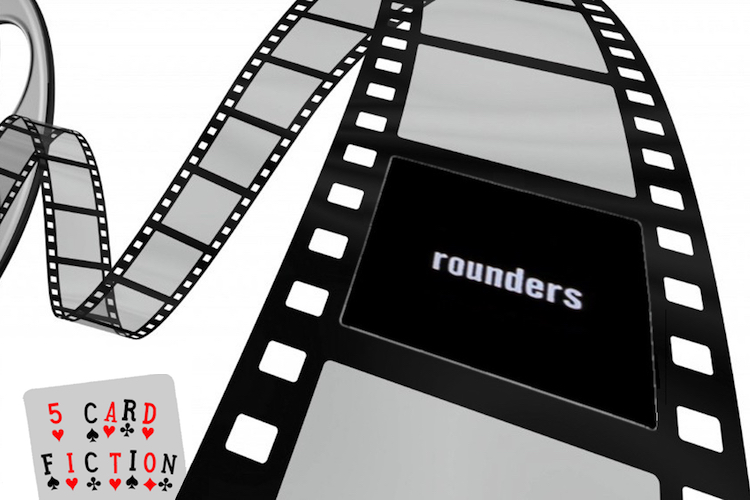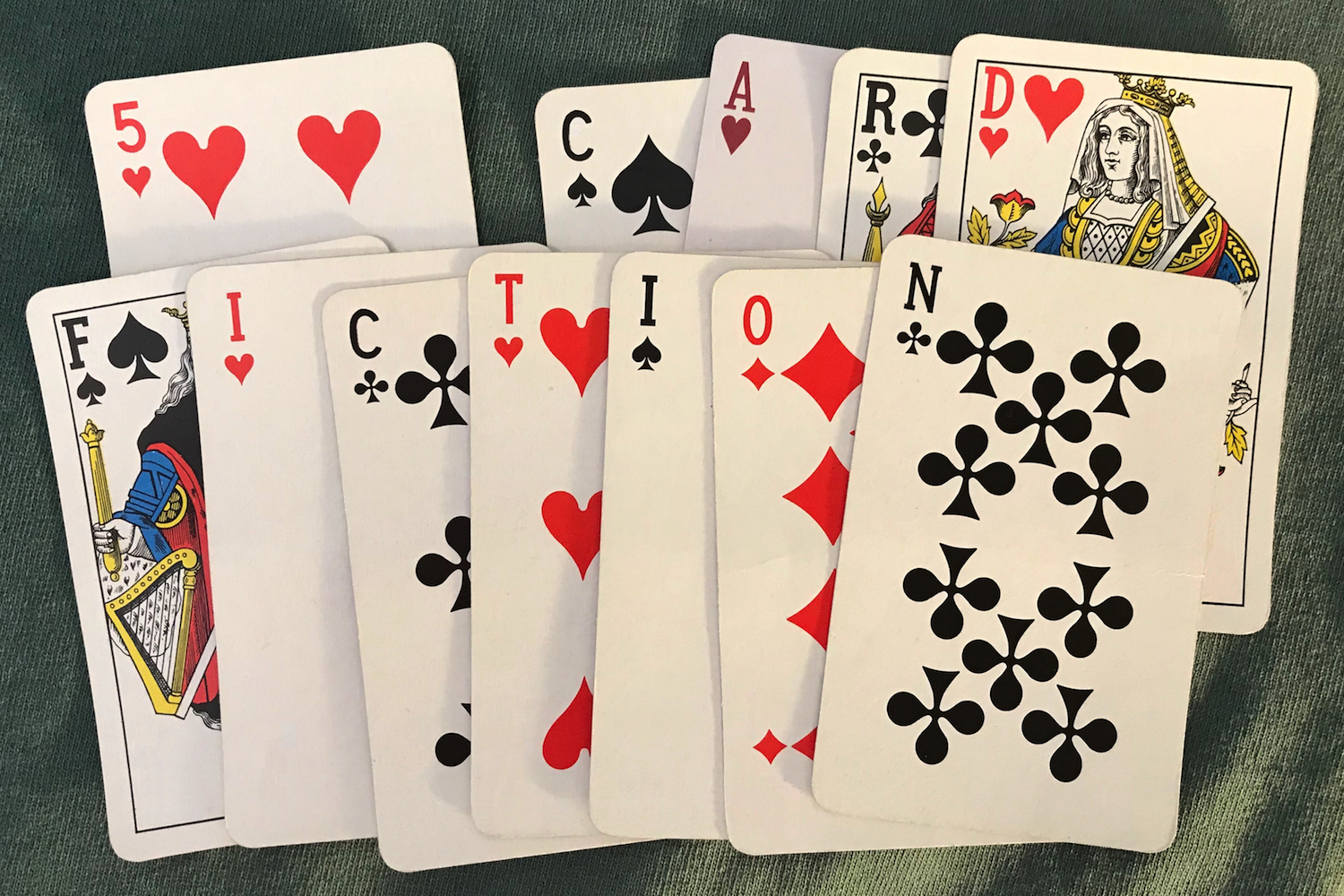It’s not a sequel, but a draft of the screenplay to Rounders nonetheless provides fans more poker to contemplate and enjoy.
Writers sometimes talk about how “less is more,” meaning that occasionally being succinct and learning how to subtract what is unnecessary can actually add to what you already have. Poker players do the same sometimes, such as when they pick up a big hand and don’t bet too much right away so as to increase their chances of winning a bigger pot.
Speaking of desiring more, fans of Rounders, the 1998 film that inspired a generation of poker players during the poker “boom” of the 2000s, have long pined for a sequel. After all, the film ends with protagonist Mike McDermott leaving New York City for Las Vegas to pursue his dream to play in the World Series of Poker — seemingly inviting a continuation of the story.
If you think about it, a lot of poker players lived out a kind of Rounders sequel themselves during the 2000s, going to Las Vegas to play in the WSOP after having watched Mike McDermott arrive at his decision to so in the film.
One of those who did was Chris Moneymaker, who started playing no-limit hold’em after watching Rounders. Then in 2003 he was the one we were watching beat the great Johnny Chan — just like Mike does in the movie. Also like Mike, in Moneymaker’s Hollywood-like story ended with him winning the climactic final hand, providing yet another inspiration to those watching.
Two decades later a Rounders sequel is still a topic of conversation around poker tables. Last week Brian Koppelman, co-writer of the script along with David Levien, gave the film’s fans something fun to tide them over as they continue to wait for Rounders 2 — a copy of a draft of the screenplay.


Koppelman describes the 126-page document as the screenplay’s third draft, which means much (but not all) of what made it into the film is already present. There are elements in the draft that aren’t in the film, too, and while in retrospect the edits all seem well chosen, reading through the draft does give fans of the film something many have wanted for years — more Rounders!
The draft includes all of the many card-playing scenes in the finished film — the opening at Teddy KGB’s, the judges’ game, Worm playing hearts in prison, the “trust fund babies” game, games at the Chesterfield club (called the Mayflower in the draft), the trip to Atlantic City, the montage of games ending with the municipal workers’ game, and Mike’s final return to KGB’s. There’s also the flashback scene near the end when our hero recounts successfully bluffing a WSOP champion at the Taj Mahal (albeit with some different details).
Among these scenes appear three hands not shown in the film, providing a little more 5-card fiction for us to explore.
HAND #1: TEDDY KGB CRUSHES ANOTHER SOUL
The script reveals Mike’s name was originally Matt, the change decided upon after Matt Damon ended up getting the role. There is also more poker in the opening scene at Teddy KGB’s, including a detailed hand of no-limit hold’em that precedes the one in which McDermott loses his entire bankroll to Teddy in one devastating hand.
In the hand several players — including Teddy KGB and McDermott — call a $250 opening bet (the action isn’t specified) and see a flop come 2♠J♥4♦. A player named Irving leads for $500, and after another player calls Teddy raises to $2,500. Only Irving calls the raise.
The turn is described as a “rag” and both remaining players check, then after the A♥ river completes the board, Teddy bets enough to put Irving all in. The latter says he’s not going to let the Russian “buy it” and calls, turning over “spikes” or pocket aces to show he’s rivered trip aces.
Alas for Irving, Teddy tables 3♦5♠ to show the river gave him a wheel, and amid Irving’s griping he collects the pot. Soon after comes the big hand between KGB and McDermott.
The hand shows KGB to be a winner even before he cleans out Matt/Mike. It also shows him to be a bit of a gambler, calling a raise with 3-5 offsuit before the flop and then semi-bluffing after flopping his draw.
One other detail — KGB conspicuously munches an Oreo after hitting his straight on the river, just as he’ll do after flopping top set of aces in the hand versus McDermott, as shown at the very start of this clip:
HAND #2: MCDERMOTT SANDBAGS WITH A STRAIGHT
Another hand appearing in the draft that is not in the film crops up during the montage of games McDermott plays in an effort to build up the $15,000 Worm needs to pay his debt to Grama.
All of the games in the film are in the script, starting with the one with teamsters, the Smoke Shop game, the one at the Greek diner, and ending with the game at the pro shop in the golf club. However stuck in there as well is another hand of $30/$60 limit hold’em Mike plays at the Mayflower Club, what the screenwriters originally called the Chesterfield (the club based on the famed Mayfair Club in NYC).
With the board showing 7♠5♦9♣3♥, we know McDermott has 6♠8♦ for a straight when he checks. His opponent named Shargel bets and McDermott check-raises, getting a call.
The river K♣ means he still has the nuts, and Matt/Mike apparently checks again (there’s no stage direction) before Shargel bets once more. “Matt looks at the board as if he suddenly realized there’s a possible straight out there,” says the script just before describing him check-raise again.
Shargel calls and shows 4-6 for a seven-high straight, but McDermott’s nine-high straight is the winner. It’s a hand safely cut for the sake of brevity and to help keep up the brisk pace of the montage.
HAND #3: MCDERMOTT VERSUS… HELLMUTH?
While both of those hands might have been fun to see on screen, it’s easy enough to understand why they were left out, particularly from a film with a two-hour running time. Both establish ideas already shown in other hands, and the latter one might even have taken away some of the impact of the straight McDermott also slow plays in the film’s final hand.
There’s one other hand in the draft, coming near the end in that flashback scene where McDermott tells Knish how he joined a $300/$600 limit game at the Taj Mahal, the one in which “I sat with the best in the world… and I won.” You remember the scene, of course:
On the DVD commentary, Koppelman describes how once in Atlantic City he took his chances playing with Hellmuth. “I didn’t beat him in a hand, but I played three hands at these stakes with him and just thought it [would] be incredible to be able to put a move on him. But I was too scared, unlike the character.”
In the movie, Mike says he had “rags” when he boldly four-bet preflop, getting Chan to fold. In the draft, Matt/Mike raises from late position with 8-9 suited, Hellmuth three-bets from the big blind, McDermott four-bets and Hellmuth calls.
The flop comes K-K-J and after Hellmuth leads with a bet, McDermott raises and Hellmuth folds.
Again, the scene works just fine — likely better — without the hand details. Chan’s involvement also functions as a nifty call back to the 1988 WSOP Main Event video McDermott watches earlier in the film, the final hand of which provides a similarly satisfying symmetry with the movie’s last hand with Teddy KGB.
Perhaps in the draft the screenwriters were aiming for a different kind of symmetry, actually, as 9♠8♠ also turns out to be the hand with which McDermott felts Teddy KGB in the film’s climax after flopping a straight and check-calling his way to the river.
Does the script reveal what Teddy had in that final hand? No, it doesn’t.
I don’t think it needs to, really. Gives us something else to think about as Rounders concludes. You know… less is more.


“5-Card Fiction” is an ongoing series examining fictional poker hands from film, television, and elsewhere. Have a favorite fictional poker hand you’d like to see discussed? Tweet your suggestions @PokerStarsBlog.
Try your hand at slow playing monsters or bluffing with “rags” at PokerStars.
Back to Top






